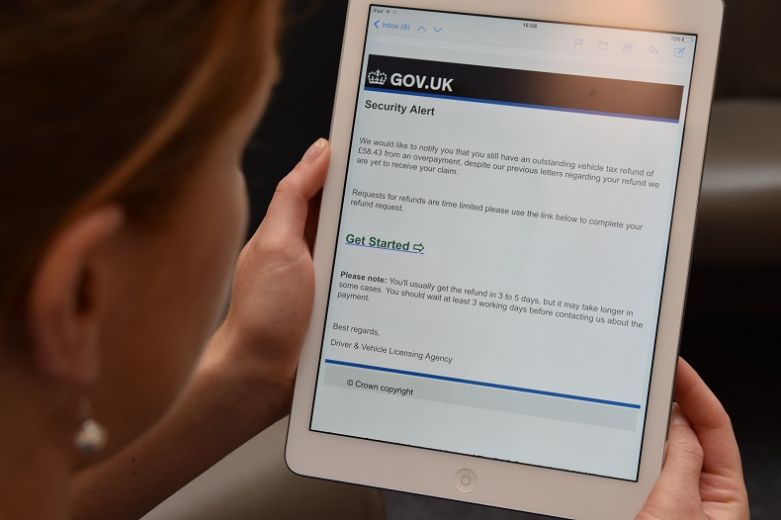In recent times, the DVLA (Driver and Vehicle Licensing Agency) has encountered a surge in scams impacting unsuspecting individuals across the UK. These fraudulent activities have caused distress and financial losses, making it crucial for us all to be aware, vigilant, and informed. Join us as we delve into real people’s stories, provide valuable examples, and share some tips and tricks to protect oneself against these deceptive practices.
One such story involves Emily, a hardworking individual from Manchester. She received a convincing email supposedly from the DVLA, notifying her of an unpaid fine for a motoring offense. Panicked, Emily clicked on the embedded link without hesitation and provided personal information, including her bank details. Little did she know that this email was a cunning tactic used by fraudsters to gain access to her sensitive data. As a result, her bank account was drained, and she was left to deal with the aftermath of identity theft.
Similarly, Paul, a retiree residing in London, fell victim to a phone call scam and received what appeared to be an official call from the DVLA. The caller, posing as a DVLA representative, mentioned that Paul’s driving license needed immediate renewal and asked for payment to be made over the phone. Believing it to be genuine, Paul provided his credit card information, only to discover later that his hard-earned savings had been emptied by these scammers.
These distressing tales illustrate just a fraction of the growing menace posed by DVLA scams. However, armed with knowledge, one can become better equipped to recognize and avoid falling for these deceitful tricks. Here are a few tips and tricks to keep yourself protected:
1. Double Down on Suspicion: Be cautious of any contact claiming to be from the DVLA, especially if it requests personal or financial information. Scammers often create replica websites and emails that closely resemble official DVLA communications.
2. Check for Official Communication Channels: DVLA will usually correspond via traditional mail if they need to inform you about any vehicle or licensing matters. Emails claiming urgent action should be treated with skepticism.
3. Verify Contact Information: If you receive a call or email that seems suspicious, independently search for the DVLA’s official contact details. Compare them to the information provided in the communication to ensure authenticity.
4. Never Share Sensitive Information: Legitimate organizations like the DVLA will never request sensitive details (such as bank account or credit card numbers) over the phone, via email, or through unsolicited messages.
5. Install Reliable Security Software: Employ reliable antivirus and anti-malware software on your devices to protect against phishing attempts and malicious links or attachments.
While scammers are continually evolving their schemes, we, too, must adapt in order to keep them at bay. By spreading awareness and sharing our experiences, we can help others avoid becoming victims.
Uncover more about this scam and learn about people’s experiences with this deceitful activity by exploring 02030112644.

To further illustrate the importance of vigilance, consider Lisa’s experience. She received a text message claiming she was eligible for a vehicle tax refund and directing her to a fraudulent website. Fortunately, Lisa’s keen eye for detail and a hunch of suspicion saved her from divulging sensitive information and falling into the trap.
These stories are stark reminders that anyone can be targeted, regardless of age, occupation, or geographic location. Thus, it is vital that we all remain alert and share our knowledge to protect ourselves and our loved ones from falling prey to these scams.
In conclusion, the alarming increase in DVLA scams has ushered in an era where greater vigilance and awareness are paramount. We have explored real people’s stories, learned from their experiences, and shared helpful tips and tricks to safeguard ourselves from falling victim to these scams. By staying informed and spreading awareness, we can collectively combat this ever-evolving menace. Remember, knowledge is power, and in this battle against scammers, we must armor ourselves with knowledge and emerge triumphant.